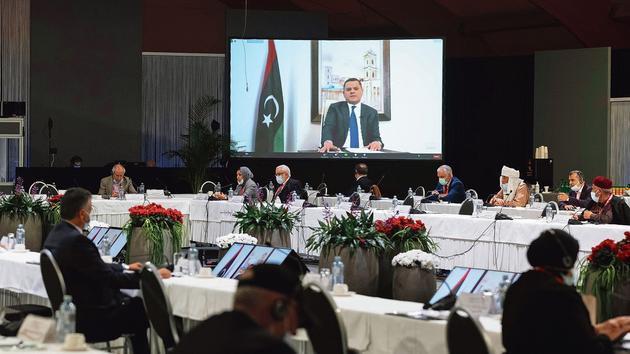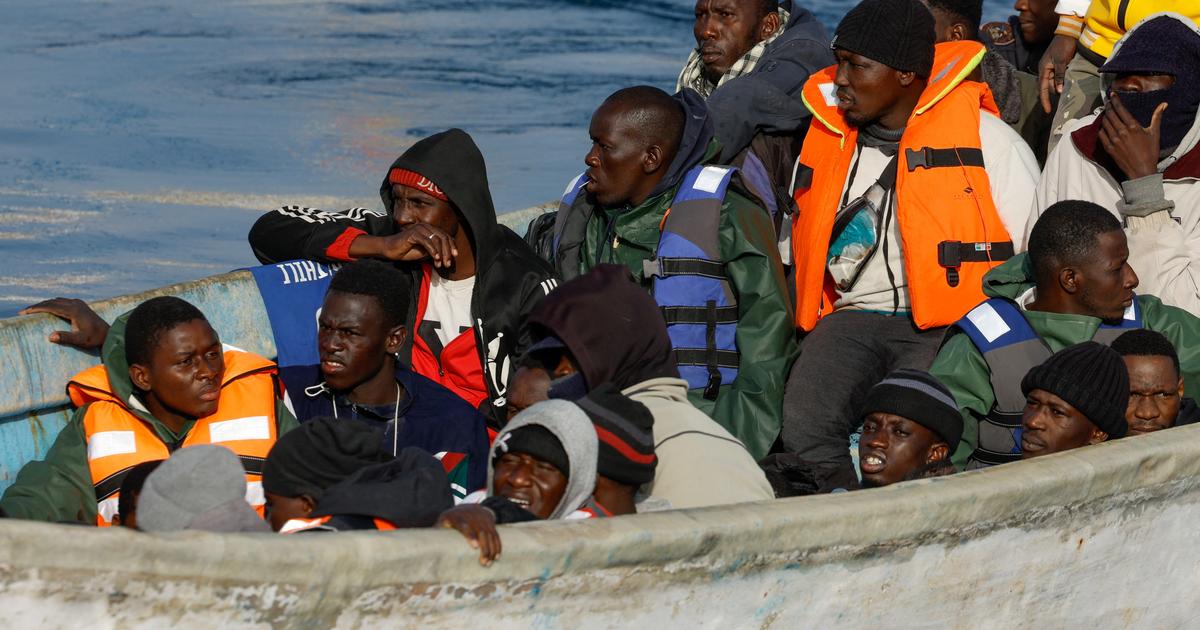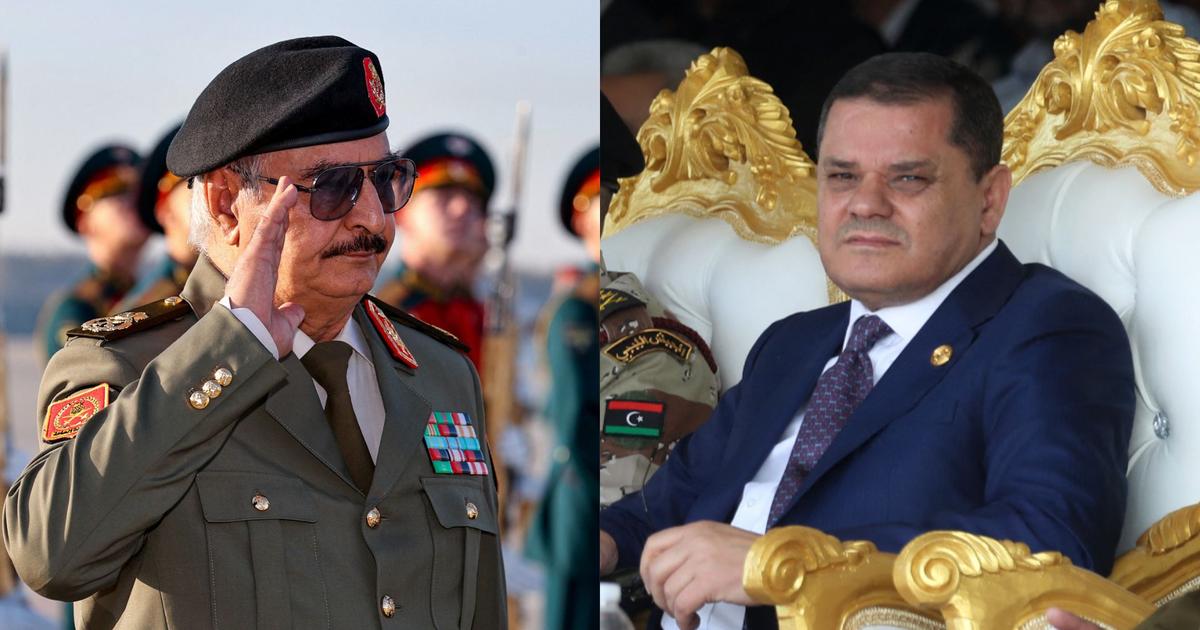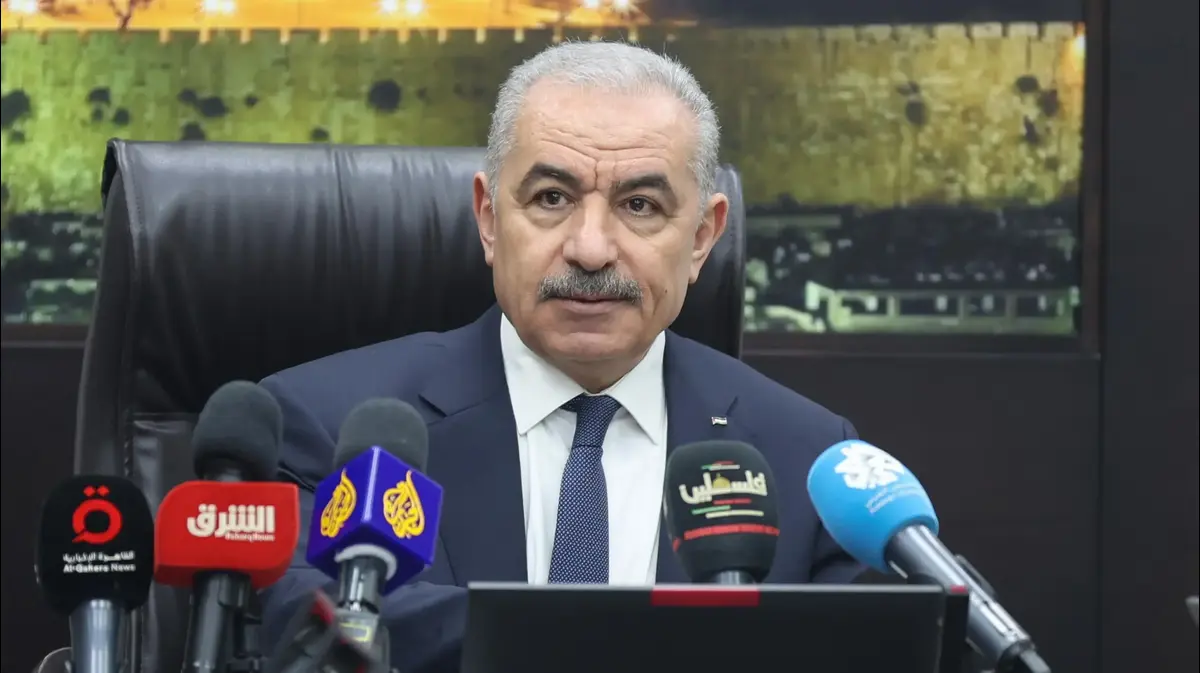This Saturday, Libya woke up with a new united executive.
The Libyan Political Dialogue Forum (LPDF), meeting in Geneva under the aegis of the UN, effectively elected on Friday a Presidential Council - a tight cabinet - of three members and a prime minister.
They will have the difficult task of setting up a single government while two authorities have been clashing, more or less violently, since 2014.
Read also:
Libya: negotiations under the auspices of the UN have stalled
It was in the second round that the number one list was elected Friday in the middle of the afternoon by the 75 delegates of the LPDF selected by the UN.
This list was far from being the big favorite, but it probably convinced voters with its more consensual names than its competitor.
Thus Mohammed Menfi becomes president of the Presidential Council.
Originally from eastern Libya, he was previously ambassador to Greece, the country from which he was dismissed at the end of 2019, following a maritime delimitation agreement in the Mediterranean between Libya and Turkey which rekindled tensions with Athens.
Share oil revenues
The Touareg Moussa al-Koni, known for his support for Gaddafi, will be a member of the Council - a post he already held until 2017 - as well as the deputy Abdullah Lafi.
Abdulhamid al-Dabaiba, meanwhile, was appointed prime minister.
The appointment of this inhabitant of Misrata (revolutionary stronghold of Tripolitania) should not fail to be criticized since a member of his family has been accused of having tried to bribe members of the LPDF.
Stephanie Williams (acting head of the United Nations mission in Libya) had promised an investigation into this matter during the first LPDF meeting in November in Tunis.
Read also:
Libya: Tripoli and Benghazi reweave the thread of negotiations
Facing them, the favorite list included two more conflicting names: Aguila Saleh, speaker of the House of Representatives, the legitimate parliament sitting in eastern Libya, and Fathi Bashagha, current Minister of the Interior in the government of Tripoli who faces , within the capital itself, against the opposition of certain armed groups who felt threatened by its desire to fight against various forms of trafficking (human beings, oil, etc.).
Abdul Karim Sahili, a Tripolitan activist who works to involve young people in the future government, rejoiced Friday afternoon: "
To preserve calm in our country, Mr. al-Dabaiba's list is the best option
."
Stephanie Williams, for her part, congratulated the members of the LPDF: “
You have overcome your differences and the various challenges during this difficult journey,
” she said.
Representative government
The main mission of the elected team will be to organize the general elections announced on December 21.
For this, it will have to appoint a representative government of the Libyan tribes and minorities.
He will then have to take heavy decisions, such as the absorption (or not) of the savage debt, accumulated by Khalifa Haftar and the parallel government of the East to lead the battles launched in 2014 in Benghazi against terrorist and revolutionary groups;
or even the release - and therefore the distribution between the three historic regions - of oil revenues.
All this, while none of the newly elected officials addressed these themes in a concrete way.
In their presentation at the start of the week, most of them simply talked about reconciliation and peace.
Read also:
Libya: why Turkey's activism is giving France a cold sweat
The UN seems in any case determined to take advantage of the lull that has reigned since mid-June "
thanks to Russia
(ally of the East, Editor's note)
and Turkey
(which supports the West)
who have agreed to share the economic cake,
”according to Jalel Harchaoui, researcher at the Global Initiative Against Transnational Organized Crime organization.
The Security Council on Thursday ordered the deployment of a vanguard of ceasefire observers signed in October, who will be responsible for verifying the departure of foreign fighters deployed in Libya.
Estimated at 20,000, these are mainly Russian mercenaries, Turkish soldiers and Syrian rebels sent to Libya by Ankara.
An announcement that makes Jalel Harchaoui smile: “
The presence of the UN has never stopped wars.
Stephanie Williams went to Sirte, a few hundred yards from the Russian mercenaries a few weeks ago.
They didn't tremble
. ”












